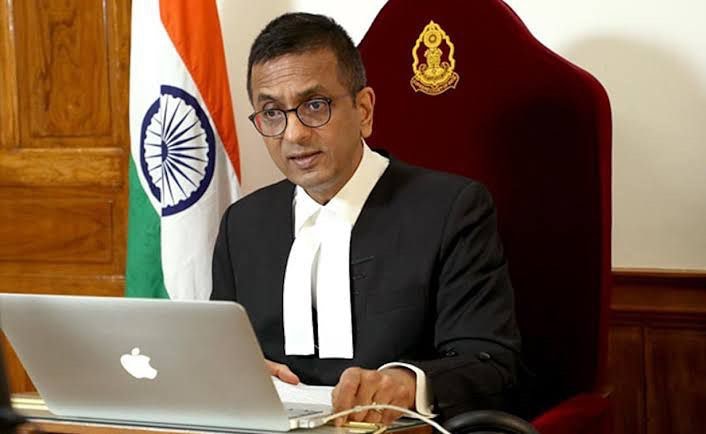Chief Justice of India (CJI) Justice DY Chandrachud, considered a liberal judge of his times, on Friday made a pitch for representation of the marginalised sections in the judiciary.
Speaking at an event to mark Constitution Day, Justice Chandrachud said the seeds of liberal democratic values were first sown by the indigenous people of India.
With PM Narendra Modi listening, the CJI said the Constitution is meant to undo injustice against women, disabled persons, Dalits, and tribal communities.
Explaining what he called “the story of our Constitution”, Justice Chandrachud said: “It is a story of human struggles and sacrifices. It is the story of undoing injustice against the marginalised sections of our society — women, disabled, Dalits and members belonging to tribes and segments situated in far flung areas of the country.”
“It must be remembered that the marginalised communities were the first to plant the seeds of constitutional ideas of liberty, equality and fraternity on Indian soil. The first wave of resistance against the colonial power came from indigenous communities of India,” he remarked.
Constitution Day or ‘Samvidhan Divas’ is celebrated in India on November 26 every year to commemorate the adoption of the Constitution in 1949.
Justice Chandrachud termed the Indian Constitution as a “social contract between those in power historically and those who were oppressed”. He said it seeks to change the “power hegemony”.
“The Constitution of India is to a large extent aspirational, for it seeks to deliver political freedoms and civil rights attempting to shrug off the colonial baggage,” added.
The Chief Justice appealed to young minds to reflect on the social realities of India and work towards achieving fraternity by dedicating themselves to the cause of justice in “whatever way possible”. “Sometimes, change happens by small act of kindness.”
Making a strong pitch for a change in “mind set” in lower courts, he said: “The district judiciary must be lifted from the mind set of being subordinated judiciary.”










